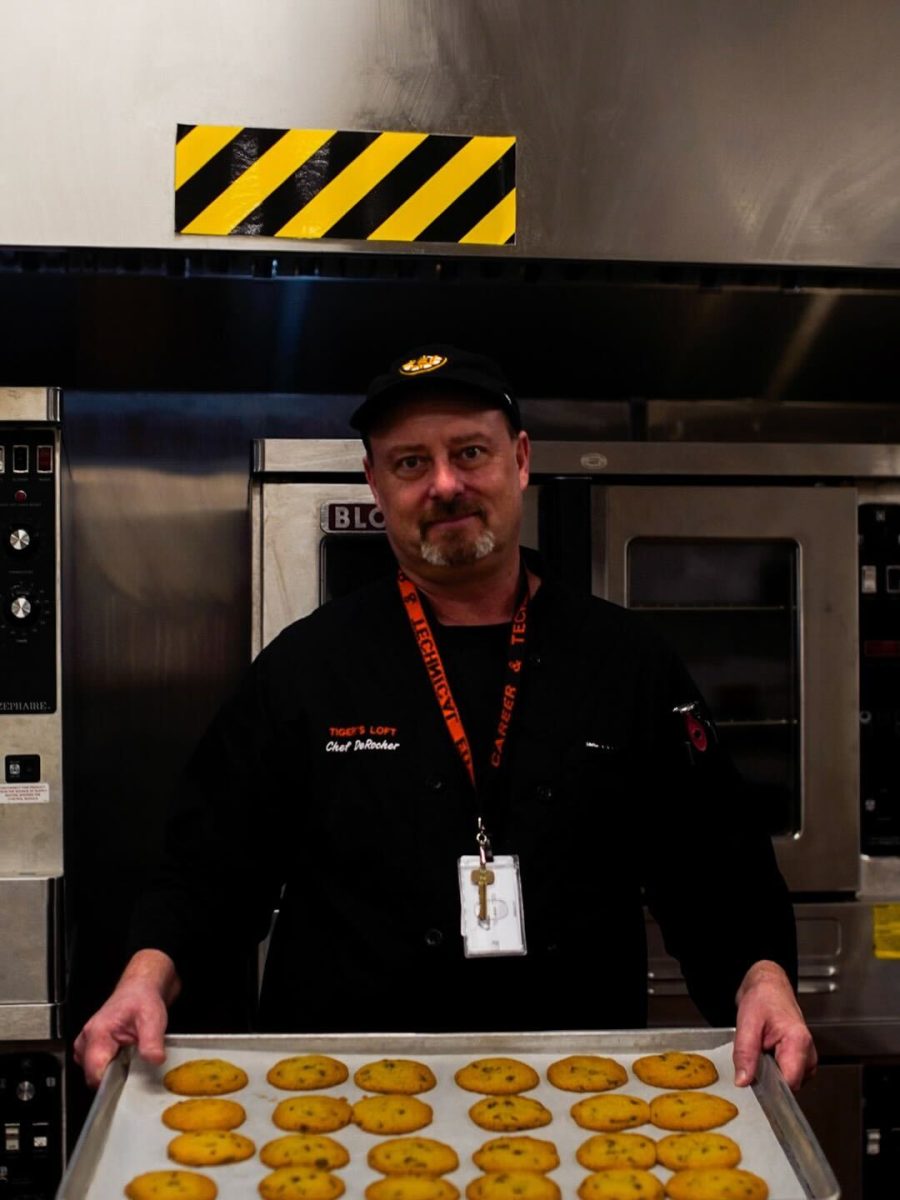 [/media-credit]
[/media-credit]
- Senior Ilana Greenstein signs a copy of her book, “Searching for Solace: Dealing with My Father’s Suicide,” at the publication party Saturday, Jan. 21.
by Malini GandhiFor some, writing is an escape, a smooth, isolated world to turn to when reality has too many jagged edges and too few answers. For others, writing is not a way to escape from reality but a way to face it and reflect on it, a way to order and articulate the jumbled colors and thoughts. And for others, writing is something else entirely: it is a tool to help others and a message intended to instruct and edify.
In the case of senior Ilana Greenstein, her recently published book “Searching for Solace: Dealing with My Father’s Suicide” is a striking testament to the power of all three of these motivations for writing: what began as an escape morphed into a way to reflect and heal and finally ended up as a message to “help kids going through similar things who need someone to talk to and need their emotions confirmed,” according to Greenstein.
The book, which was published in early January and will be distributed specifically to teenagers also undergoing losses, consists of selections from the journal Greenstein wrote during her sophomore and junior years. This journal chronicles the year following the death of her father.
The book itself is thin and orange, and as Greenstein signed her name in the front flap of dozens of books, during the book publication party Saturday, Jan. 21, the cover photograph of her looking out at the horizon flickered in the soft light.
“I had never intended it to be published—it was just my journal,” she said.
According to Greenstein, she has kept a journal since second grade, but “not as consistently as after my father’s death.”
“After it happened, I had trouble talking to other students. I closed off; I looked to myself. I was writing almost every day,” she said.
Greenstein said that writing helped her reflect on and make sense of her fluctuating emotions.
“Something happened when I wrote. Often times during the day I would suddenly find myself in a terrible mood, and I would have no idea why. But, then I would write about it and look back on what happened and realize that it was connected to my dad. Something I had said or done or observed had reminded me of him, and I hadn’t even realized it at the time. They were little unconscious cues, and as I wrote, I gained more insight about myself.”
English teacher Mary Palisoul, who was Greenstein’s teacher during her freshman year and who Greenstein credited in her dedication page as one of the people who taught her to love writing, said that personal writing can be a valuable healing process and a “cathartic experience.”
According to Palisoul, “Writing can transform painful thoughts or emotions into a tangible, manageable product, whether it be a poem or journal entry.”
Greenstein said that her journal was indeed a tool to deal with the abstract and unapproachable. The personal nature of the process meant that Greenstein said she never even considered seeking publication. Instead, the opportunity came to her.
“My mom was talking with one of her friends, who was involved in publishing books teens wrote for other teens, and happened to mention my journal. My mom’s friend said she would be interested in taking a look at a few entries.
“At first I was like ‘no way’…it was my journal, after all. But then I realized: maybe there were kids out there who knew someone that killed themselves and were thinking of going down that same path. I knew that if my words could help just one kid, could stop them from doing that, then I would have made a difference.”
According to Greenstein, the publisher read a sample of her entries and said they were definitely what she was looking for. She then told Greenstein to “disconnect from the work for a while: just set it aside and not immediately go back and re-read it.”
Greenstein said that it was a long waiting process as the publisher dealt with other works before her’s, but “then all of a sudden it was my book, and everything went so fast. We were reading it over and cutting out all of the unnecessary things. It was 11 months of my life and I had written practically every day, so there was a lot to cut out as we tried to focus on the key entries,” she said.
Reading her journal over again after having stepped away from it for so long was disconcerting and emotional, according to Greenstein.
“It was kind of strange, because I felt like I was reading about someone else. I was reading it over and I kept thinking ‘that didn’t happen to me.’ It was so raw, and so vulnerable. Reading it over again after having stepped away for so long was hard because it brought back a lot of feelings, and I started dreaming about my dad again. But they were different feelings, and it was not the way it used to be; I was far along in the healing process at that point,” she said.
According to Greenstein, it was not until the books arrived on her doorstep the day before the publication party that she realized that “this is real.”
“I thought I would be ecstatic when they arrived, but as I looked at them it was more of a realization that the next day I was giving up a part of myself, giving it up for everyone to read. I was saying, ‘Here it is, read all about me.’ It was kind of like stripping naked in front of the world, and I wondered if everyone would judge me. I had never intended anyone to read it: it was my journal, I was lost and confused, and I did a good job hiding it. Now everything was out,” she said.
Yet, Greenstein said that she received a lot of positive feedback from students in school the following Monday. And in the end, knowing that the book was going to other kids going through similar experiences “made the whole process worth it,” she said.
While the book is available for anyone to purchase online, it will not be stocked in bookstores. Instead, Greenstein said that the book will be distributed to educators and guidance counselors “so that it goes directly to the people who need it.
“I am not just doing this to publish a book. I am doing this for the kids out there who are going through similar things. I did not know how to talk to anyone when I went through this. I did not know if there was anyone out there like me. Through this book, I want the kids who need help to know that I am here, and I am real,” she said.
And, according to Palisoul, the fact that Greenstein has not only used writing to make sense of her own circumstances, but has harnessed her journey to reach out to others is the most inspirational part of her story.
“Ilana’s journey is so powerful because she is using her own struggle to help others. I am so inspired by her,” Palisoul said.
Books can be purchased by emailing [email protected].








































